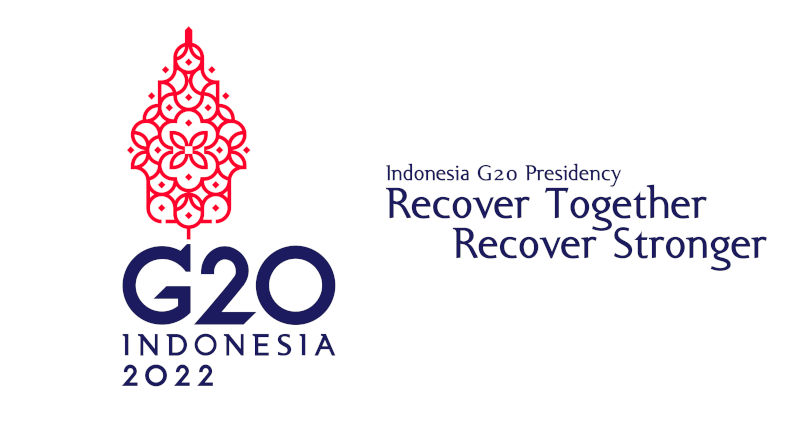G20 forecast: Bleak outlook, chances of thunder
November 7, 2022
Its the meeting season in Indonesia, but the chances of viable offspring are slim. Too much hate, too little harmony. Thats bad news for all.
Street posters around the archipelago are flogging the two-day Group of Twenty (G20) inter-government forum like a rock concert to boost national pride. But therell be no tickets for ordinary folk. Theyll hear little more than the sirens of VIP fleets hurtling past and wont witness the anticipated daytime fireworks unless theyre among the 1,300 journos and 18,000 security guards.
Only the mega powerful will get inside Balis Nusa Dua resort starting 15 November. Not all will stay unless theres an outbreak of maturity and pragmatism. As Churchill could have phrased it: Better chat than spat. The worrisome question ahead of the launch by host Indonesian President Joko Jokowi Widodo is the one which makes all party-givers twitchy: Wholl turn up?
Only two women will have nameplates at the top table the European Unions Ursula Gertrud von der Leyen and Italys new PM Giorgia Meloni. The world is still run by ageing blokes.
TheEU and 19 countries are on the list. One is Russia, and if Vladimir Putins Ilyushintouches down at Balis Ngurah Rai airport chances are that Joe Bidens Boeing will be lining up for departure. Also in the queue to quit could be Frances Emmanuel Macron, Germanys Frank-Walter Steinmeier, Canadas Justin Trudeau, the UKs Rishi Sunakand maybe even our own Anthony Albanese.
That would leave a lot of empty hotel suites, idle limos and a crimson-faced Jokowi. In June, he visited Ukraine and Russia in a failed attempt to broker peace, a well-meaning gesture which went nowhere. Thats not surprising. Although Indonesia is the worlds fourth most populous nation with more Muslims than any other country and a burgeoning economy, it has rarely beaten drums on the world stage since the Republics founder Soekarno saw himself as an international player. Jokowi is more concerned with domestic issues, while the countrys free and active non-involvement policy means it doesnt feature in the major power blocks.
In September, Indonesias FM Retno Marsudi pleaded with the UN General Assembly in words suggesting an upcoming panic attack: G-20 must not fail we cannot let global recovery fall at the mercy of geopolitics. There are other sad signs that the G20 wont be productive. In July, the G20s foreign ministers met privately in Bali and called for an end to the war and grain blockade in Ukraine. The get-together was boycotted by Canada, France, Germany, Italy, Japan, the US and the UK. It ended with Russias FM Sergei Lavrov walking out of the second meeting session.
Reuters reported that Lavrov denounced the West for frenzied criticism and squandering a chance to tackle global economic problems. The meeting crumpled with no joint statement or announcements of agreements. This also happened when the economic ministers sat down or tried to.
With these cheerless preludes Putin is unlikely to risk abuse. Hell find more pressing engagements, like overseeing his Ukraine special military operation across the freezing steppes. Sadly hell miss out on the lush and presently peaceful tropics. In that case the show may go on, even without Punch.
It used to be the G7 meeting of finance ministers till the end of last century when the door was opened wider for leaders, largely pushed by Germany, Canada and the US. Now the gathering represents 85 per cent of the worlds GDP, two-thirds of its population and 75 per cent of international trade.
This year the agenda is supposed to cover health, energy and digital transformation. These topics were chosen before the invasion of Ukraine and the energy crisis thats followed, so therell be much rescheduling. Climate change should have been addressed ahead of the G20 at the UN Conference of the Parties (COP27) now underwayin Egypt with leaders and delegates from 190 countries.
The G20 in Bali will be preceded by a Religious Forum Summit (R20) set up by Indonesias largest Muslim organisation, Nahdlatul Ulama. It claims 40 million members and has recently shed much of its militancy. Its liberal wing occasionally mentions the once blasphemous pluralism. So far the shift has been received calmly, though slowly.
R20 is being touted as an opportunity to tackle extremism and offer religious solutions to political problems. A worthy endeavor though sceptics will be interested to see if reps of the right-wing Indian Hindu nationalist movement Rashtriya Swayamsevak Sangh appear among the 400 invitees. The RSS, founded in 1925, has a reputation of hostility to Indias 200 million Muslims. The sub-continent population of 1.4 billion is mainly Hindu, the dominant religion in Bali. If the faiths can talk to each other and reason without tossing their toys out of the cot maybe theyd shame the polis into some adult responses.
Widodo hopes that even if theres a walkout he wont lose face completely. He wants Xi Jinping to stay over so the Chinese leader can try out Indonesias first bullet train from Jakarta to Bandung (the West Java capital). Its been built with Chinese loans and labour, though still not in commercial service.
The slogan for this months G20 is in English - Recover Together, Recover Stronger. These are supposedly Jokowis words. Maybe he should have selected Stay Together.

